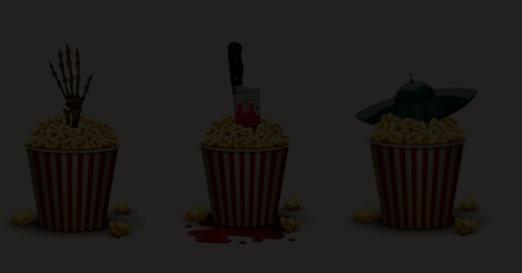 Reviews
Reviews


I like to delve into foreign films whenever I can. As a committed genre film devotee, I often opt for South Korea. With films like Oldboy and I Saw the Devil, nobody makes a dark, brooding thriller film with as much unflinching intensity like South Korea.
I’ve never been able to enjoy Japanese horror (or, in this case, thriller) films the way I’d like. Japanese culture has brought anime I’ve thoroughly enjoyed and drama films like Nobody Knows I’ve really enjoyed, but I’ve never loved their selection of genre film. This is not necessarily meant as a knock on them, but a suggestion that I have not yet developed a preference in Japanese horror the same way I have in other markets.
Horror films often have distinctive Japanese imagery incorporated in them, but I find they often suffer more on a narrative level (I will keep digging, mind you), and so I was excited when I heard of Killers, a 2014 Japanese-Indonesian psychologically film directed by the Indonesian duo The Mo Brothers and written by Takuji Ushiyama and Timo Tiahianto (one of the Mo Brothers).
The film received a warm reception from critics and oftentimes I’ve even heard it compared to I Saw the Devil. Let’s go ahead and dive down to see whether or not Killers is a psychological thriller worth taking a look at.
Killers follows several perspectives, in Japan, Nomura Shuhei is a charismatic and wealthy Japanese executive who uses different methods to brutally murder people, often targeting young women, and records his heinous assaults for the internet. Describable as a Hannibal Lecter type individual, this calm, sharply dressed man has a coolly calm demeanor about him that adds a mystique to him as a constant looming threat. In Indonesia, a Jakarta-based journalist has his sights set on a corrupt politician named Dharma, on-account of the rumors surrounding domestic violence against his wife. This obsession the journalist starts to develop sends his social-life into a spiral, estranging him from his wife. Other variables are also in-motion, but, specifically, Killers is the dynamic of the serial-killer, the journalist turned vigilante, and the businessman hiding something sinister.
Something I noticed very early-on as I watched Killers had to do with the production-value of the film. The cinematography is on-point, which is something I hadn’t expected, anticipating the filmmakers would opt for a more minimalist approach instead of the stylish presentation we instead received. The scenes are nicely shot with an execution to them that is realized.
The story presented in this film is an intriguing concept, the vigilante that commits acts of murder for his own righteous philosophies and then his relationship with a sociopathic serial-killer. Something I also like about this film, which is a statement that holds true for a film like the South Korean film I Saw the Devil is that it approaches its dark subject-matter with an approach that isn’t as cinematic or as polished as what is so often seen in mainstream, large-scale productions, Killers has an ugliness to it that it doesn’t try to doll up in any form.
As far as criticisms are concerned, the film is plagued with some occasional tonal inconsistencies, which has some to do with the way its run-time extends past the two-hour mark. This isn’t inherently an issue, a film with as many moving parts as this could certainly do well with the breathing room, but it feels like the film could’ve tightened on the main-conflict in a tighter fashion. This might seem like a minor criticism, and, in the grand-scheme, it is, but I think the film could’ve done well if they’d trimmed the fat.
I also think this is a film that works better in-retrospect than it did while I watched it. The performance I found myself invested with most was of Kazuki Kitamura, whose performance as the psychopath always had my curiosity with how delectably deranged he was, whereas everybody else often felt like a vehicle to further compliment my enjoyment of his misbehavior. The vigilante dynamic itself is one that I never felt as invested in as I would have liked. I never felt like I felt the emotional strain of the character to the degree I would have liked. It told of the detriment it had on his personal life, but I don’t think it ever escalated those elements beyond familiar tropes found in similar characters.
Lastly, I think the conclusion of the film wasn’t as satisfactory as I would’ve liked, almost conforming to the conventions of mainstream cinema I had praised it for going against.
Killers has a plethora of memorable scenes worthy of accolade which make me feel comfortable about my recommendation of it. As a psychological thriller, it shows mind-sets from different walks of life, asking the watcher to potentially even sympathize with them on occasion, showing them with careful consideration, regardless of how heinous and unforgivable all of their behavior is.
It walks the fine-line of humanizing its serial-killers without stripping away the mystique that draws people’s interest in serial-killers. The film is harsh and violent, and its unflinching portrayal is one of the most alluring parts about it. The film itself, perhaps, leaves a lot of potential unchecked. I think they could’ve done more with their concept, but a lot of that has more to do with what I wanted the film to be and less to do with the film’s actual merits or lack thereof.

